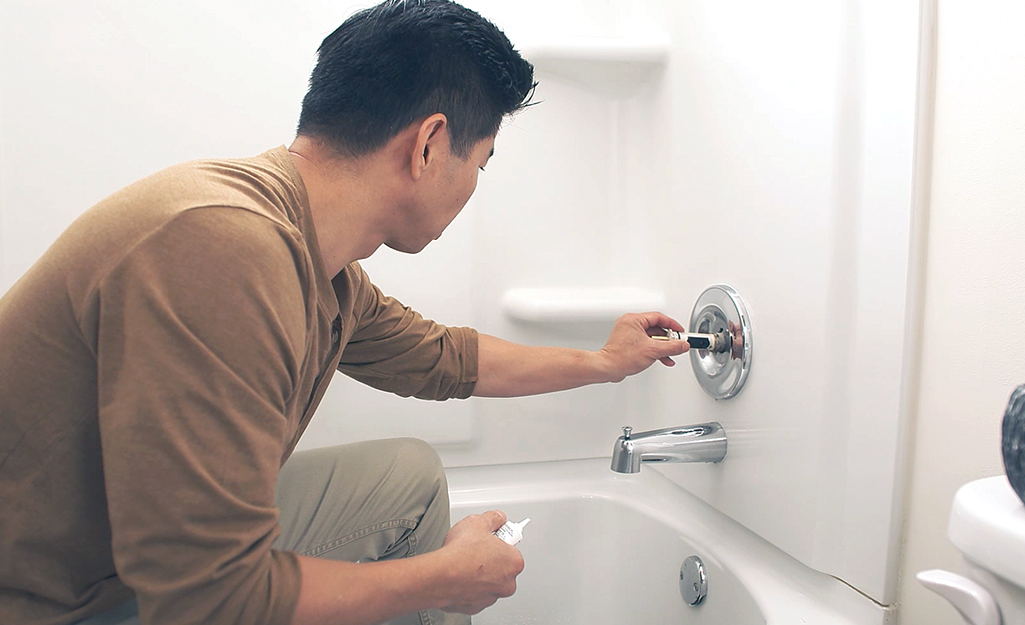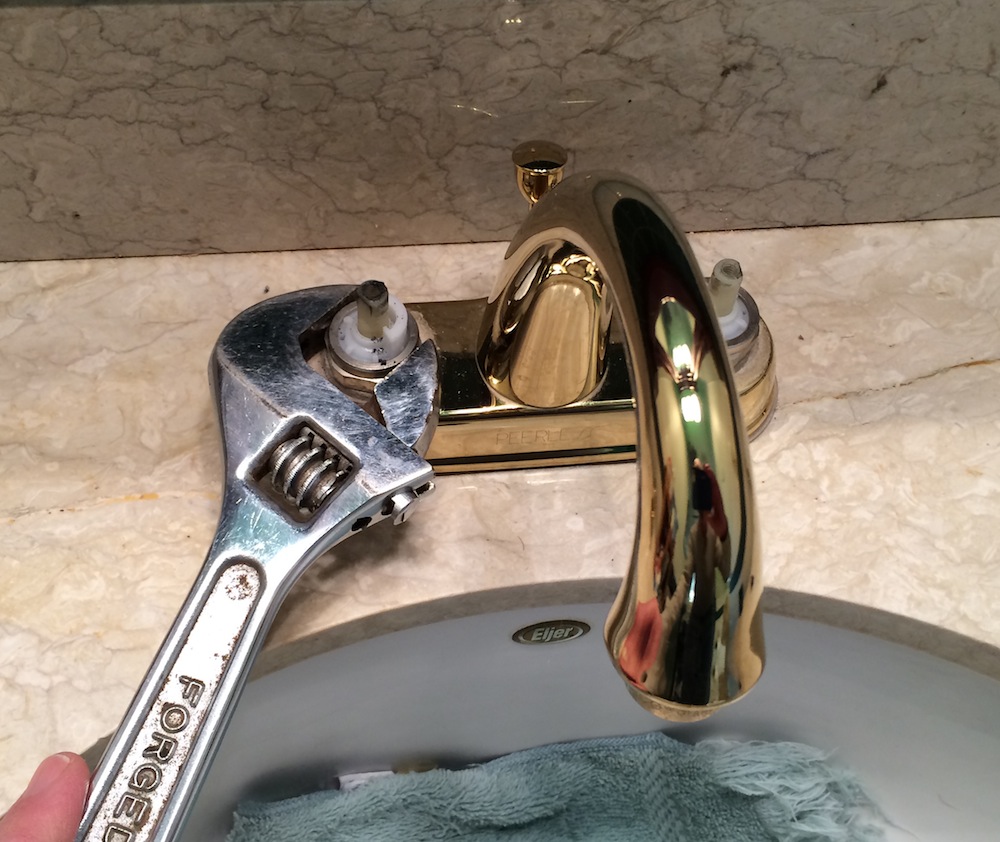We have discovered this article involving Water Dripping from Faucet: Why and How to Fix down the page on the web and decided it made good sense to talk about it with you over here.

Trickling taps could feel like a minor inconvenience, yet their effect surpasses simply the nuisance of the noise. From wasting water to incurring unnecessary financial prices and health and wellness risks, overlooking a leaking faucet can cause numerous effects. In this write-up, we'll delve into why it's vital to resolve this typical family problem immediately and successfully.
Waste of Water
Environmental Impact
Trickling taps add significantly to water wastefulness. According to the Environmental Protection Agency (EPA), a solitary faucet dripping at one drip per secondly can lose more than 3,000 gallons of water each year. This not only pressures water resources yet also influences ecological communities and wildlife depending on them.
Step-by-Step Guide to Dealing With a Dripping Faucet
Devices Required
Prior to trying to repair a trickling tap, gather the needed devices, including a flexible wrench, screwdrivers, substitute components (such as washers or cartridges), and plumber's tape.
Common Faucet Issues and Their Solutions
Determine the sort of faucet and the specific issue causing the drip. Usual troubles consist of worn-out washers, corroded valve seats, or defective O-rings. Describe supplier directions or online tutorials for detailed advice on repairs.
Financial Expenses
Raised Water Costs
Past the environmental impact, dripping taps can blow up water bills considerably. The collected wastage in time equates right into higher energy costs, which could have been stayed clear of with prompt repair services.
Prospective Residential Property Damages
Furthermore, long term dripping can lead to harm to fixtures and surfaces surrounding the faucet. Water build-up can cause discoloration, corrosion, and also structural concerns if left unattended, resulting in added repair work costs.
Health and wellness Worries
Mold and Mildew Development
The constant presence of moisture from a trickling faucet produces an ideal atmosphere for mold and mildew development. These fungis not just compromise indoor air quality yet also posture wellness dangers, particularly for individuals with respiratory problems or allergies.
Waterborne Conditions
Stagnant water in leaking faucets can come to be a breeding ground for microorganisms and other microorganisms, raising the risk of waterborne illness. Impurities such as Legionella microorganisms prosper in stagnant water, potentially causing major illnesses when ingested or breathed in.
DIY vs. Specialist Fixing
Benefits and drawbacks of Do It Yourself Repair Service
While some may attempt to take care of a leaking tap themselves, do it yourself repair work come with their very own collection of difficulties. Without proper understanding and tools, DIY attempts can exacerbate the issue or bring about incomplete repairs, lengthening the trouble.
Benefits of Working With a Professional Plumber
Working with a specialist plumber makes sure that the underlying reason for the trickling faucet is resolved properly. Plumbers possess the knowledge and devices to detect and fix faucet concerns successfully, conserving time and decreasing the threat of further damages.
Environmental Obligation
Individual Payment to Preservation
Taking responsibility for repairing dripping faucets straightens with wider efforts towards water preservation and ecological sustainability. Every individual's activities collectively make a significant influence on protecting precious sources.
Sustainable Living Practices
By focusing on prompt fixings and embracing water-saving habits, individuals add to sustainable living techniques that profit both existing and future generations.
Preventive Measures
Normal Maintenance Tips
To avoid dripping taps, do routine upkeep such as cleaning aerators, checking for leaks, and replacing worn-out parts promptly. Furthermore, take into consideration mounting water-saving gadgets or updating to more reliable fixtures.
Importance of Prompt Repairs
Addressing dripping faucets as quickly as they're seen protects against further water wastage and potential damages, inevitably conserving both water and money in the long run.
Impact on Property Worth
Assumption of Well-Maintained Property
Preserving a building in good condition, including addressing maintenance problems like trickling faucets, enhances its viewed value and charm among potential purchasers or occupants.
Influence on Resale Value
Residences with properly maintained plumbing components, including faucets, command higher resale values in the property market. Addressing trickling faucets can contribute to a positive impression throughout home evaluations and negotiations.
Conclusion
Resolving a trickling faucet surpasses mere benefit; it's an essential action toward saving water, reducing economic costs, and protecting health and wellness and property. Whether with DIY repairs or professional help, doing something about it to deal with leaking faucets is a tiny yet impactful way to advertise responsible stewardship of sources and contribute to a much healthier, extra sustainable future.
Why Are My Faucets Dripping (And Can I Fix it Myself)?
Causes of a Dripping or Leaking Faucet
Whether you’re hearing drops of water falling and hitting a sink, or noticing water ooze out from the base of the spout, you shouldn’t ignore a dripping or leaking faucet. And, the good news is, sometimes you can fix the problem yourself.
In this article, we’ll review a few common causes of dripping and leaky. We’ll also walk you through some basic ways to find the problem and handle it without calling anyone — and let you know when to call in a pro.
But, no matter what the cause, or whether you can handle it on your own, the sooner you address it, the better.
Each drip may be a tiny amount of water. But, they all add up quickly. According to the U.S. Geological Survey, one faucet losing one drop every 20 seconds — five a minute — wastes around a liter of water every day, and 173 gallons a year.
Add in more than one in your house, and it’s a lot of water to waste. So, we’ll help you get to the bottom of things quickly.
Four Reasons Your Faucet May Be Dripping
Aerator is Damaged or Unseated Valve Seat is Corroded O Ring is Loose or Worn Out Part of the Assembly is Loose Aerator is Damaged or Unseated
If you unscrew the end of your faucet, you’ll find the aerator. It’s the little stem piece with a screen on it that shuts off the water circulation.
If it’s damaged, or if it’s not sitting right, it will allow water to pass through.
Valve Seat is Corroded
Next is the valve seat, which is connected to the washer. If the washer wasn’t in place correctly, then it could have ground against the seat. Over time, this damages the valve seat.
The problem could also be corrosion: Over time, the part has worn out, and it’s now allowing water to pass through.
O Ring is Loose or Worn Out
Since the o ring is only a small rubber gasket, it’s a common reason why the faucet is dripping. You’ll find it at the base of the faucet, and it’s there to keep water from coming out where it’s not supposed to.
However, it’s common for the o ring to wear out over time. When it does, you’ll notice a drip.
Part of the Assembly is Loose
So far, we’ve looked at a few small, specific parts. But, the problem could be anywhere in the assembly if something’s out of place.
Even if a part isn’t damaged, over time, it may have become loose or dislodged. It could be the parts we mentioned, or the aerator at the tip of the faucet, the stem itself,
Can I Fix a Leaky Faucet Myself?
Depending on the problem, and how handy you are, there’s a chance you can fix a leaky faucet without calling a professional. But, you do run the risk of making the problem worse.
If it’s a small drip, you can certainly try a few troubleshooting tactics. We’ll walk you through them in a moment.
But, no matter what, your first step should be shutting off the water coming into the faucet. You should find a shutoff valve under the sink on the pipes leading to it. Turn each one clockwise until they close tightly.
Next, make sure you have the right tools for whatever you’re attempting. It’s tempting to make do with what you have. But, you need the right ones for a reason: You’re often dealing with small parts that can break if you handle them carelessly.
If you’re feeling confident, here are some places to start.
Items Near the Tip of the Faucet
A few of the parts we mentioned — particularly the valve seat and washer — are located at the tip of the faucet where the water comes out. They’re easy to access, making it a good place to start.
Check the O Ring
To check the o ring, you’ll need to take off the spout at the base. It’s easiest on kitchen sinks with long spouts, versus the smaller, bulkier base on most bathroom sinks.
Either way, this can be tricky, so do it carefully and don’t force anything. If it’s not coming right off, you’re much better off calling in a pro than possibly breaking something.
For a kitchen sink, there’s usually a nut or coupling assembly at the base of the spout. These often slide off easily without using any tools.
Once you’ve disassembled those parts, gently but forcefully twist off the spout.
Then, you can see the o rings. There should be two of the rubber gaskets on the base. If they look worn or damaged, replace them, and see if that solves the problem.

I found that post on Why Is It Important To Fix Your Leaking Tap/Faucet? when browsing on the internet. Do you know about somebody else who is excited about 4 Common Reasons for a Leaky Faucet? Be sure share it. Thank you so much for your time invested reading it.